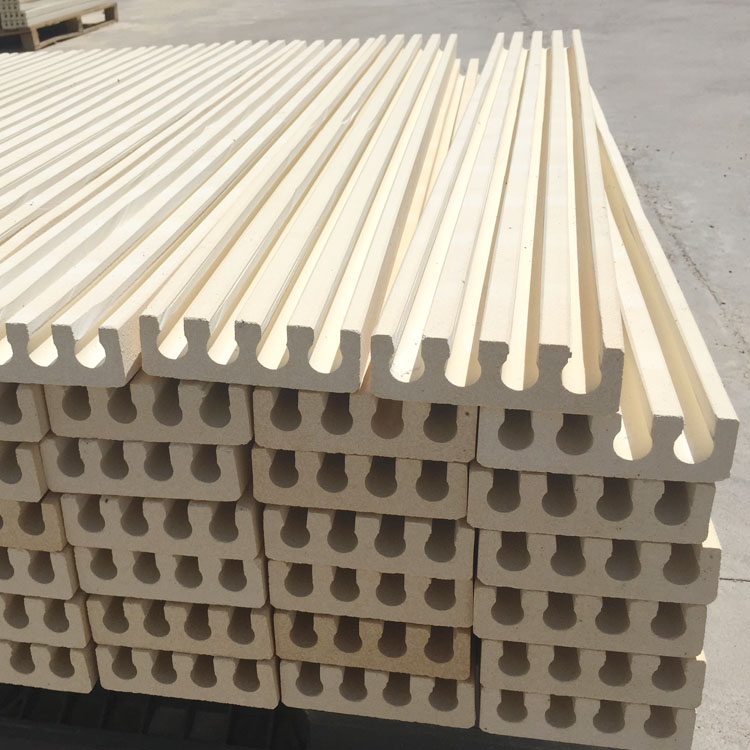
In high-temperature heat treatment processes, the selection of kiln furniture materials is crucial. These materials directly affect the efficiency of production, the quality of products, and the lifespan of equipment. Different materials exhibit varying performances under high temperatures, which makes the choice of the right material a key factor in achieving optimal results.

When exposed to high temperatures, materials such as alumina, silicon carbide, and cordierite show distinct characteristics. Alumina has high hardness and good chemical stability, but its thermal shock resistance is relatively poor. Silicon carbide has excellent thermal conductivity and high-temperature strength, yet it is more expensive. Cordierite, on the other hand, stands out in the temperature range of 1000ºC - 1300ºC.
Cordierite features a low-density, porous structure. This unique structure endows it with several significant advantages. Firstly, its low density reduces the overall weight of the kiln furniture, which in turn lowers the energy consumption during the heating process. For example, compared with some high-density materials, cordierite can reduce energy consumption by about 15% - 20%.
.jpg)
Two key indicators, creep rate and thermal shock resistance, have a profound impact on the lifespan of kiln furniture.
The creep rate refers to the slow deformation of a material under high temperature and constant stress. A lower creep rate means better dimensional stability of the kiln furniture. Cordierite has a relatively low creep rate in the 1000ºC - 1300ºC range. For instance, at 1200ºC, its creep rate is about 0.1% - 0.2% after 100 hours, while some other materials may reach 0.5% - 1%.
Thermal shock resistance measures a material's ability to withstand rapid temperature changes without cracking or breaking. Cordierite has excellent thermal shock resistance due to its low coefficient of thermal expansion. It can withstand temperature differences of up to 200ºC - 300ºC without significant damage, which is much higher than many other materials.
In a ceramic manufacturing plant, the use of cordierite kiln furniture has significantly improved production efficiency. By reducing energy consumption and extending the lifespan of the kiln furniture, the plant has achieved cost savings of about 10% - 15% in the long run. Moreover, the quality of the ceramic products has also been enhanced due to the stable performance of the cordierite kiln furniture.

When selecting kiln furniture materials, manufacturers should consider factors such as the operating temperature range, the type of products being processed, and cost. For high-temperature processes in the 1000ºC - 1300ºC range, cordierite is a highly recommended choice. In terms of process optimization, proper preheating and cooling procedures can further enhance the performance of cordierite kiln furniture.
Choosing the right kiln furniture material is not only about immediate cost savings but also has a long-term impact on production efficiency and cost control. A high-quality material like cordierite can reduce maintenance costs, improve product quality, and increase overall production efficiency. This ultimately leads to greater competitiveness in the market.
If you are interested in learning more about our high-quality cordierite kiln furniture materials and how they can optimize your high-temperature heat treatment processes, click here to explore further!

